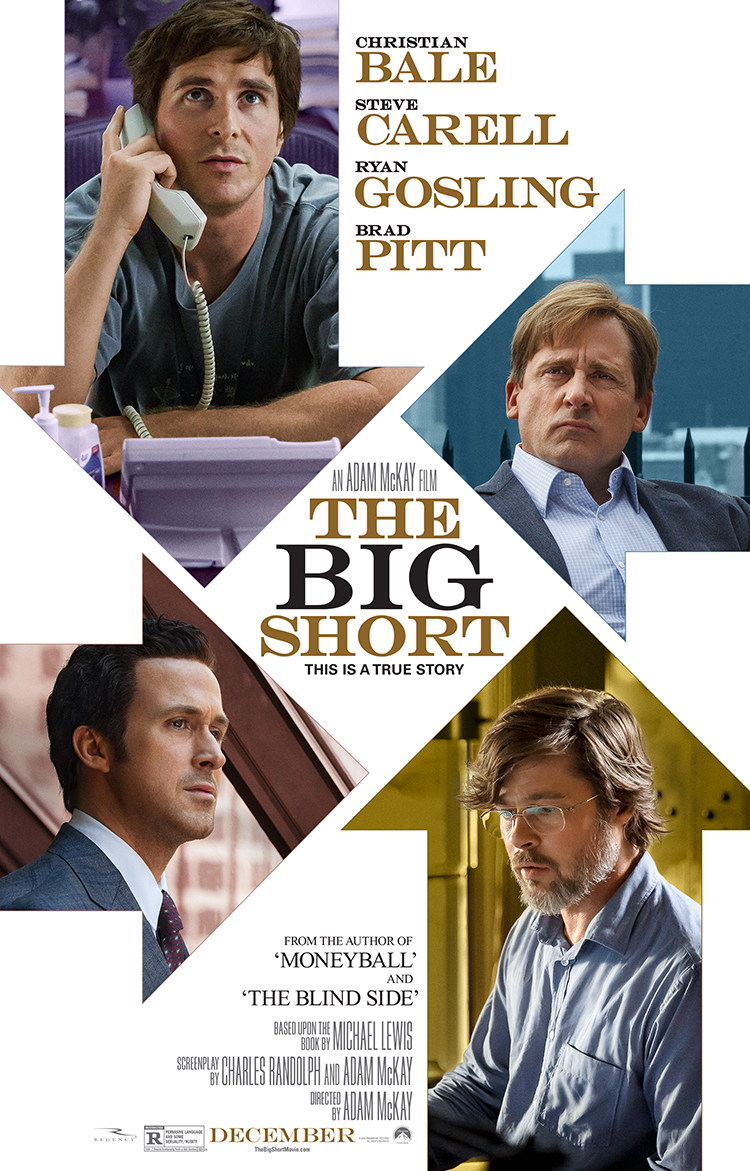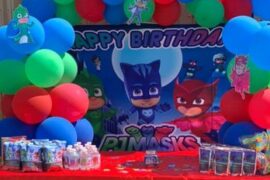A Parent’s Guide to “The Big Short”
Introduction
Welcome, lovely parents! We understand the apprehension that comes with deciding whether a movie is suitable for your child or not. Let’s break down “The Big Short,” so you can make an informed decision. With a happy heart, we’re here to accompany you every step of the way!
What is “The Big Short”?
Award-winning and thought-provoking, “The Big Short” is a thrilling movie that dives deep into the economic jargon and the financial crisis of 2007-2008. Don’t worry, the film isn’t as ominous as it sounds! It elucidates complex economic situations with a touch of humor, making it relatively easy to grasp.
What Parents Need to Know
Before you give that popcorn bucket a shake, let’s delve into some details that will help you decide if this movie meets your family-friendly criteria.
The Content: What to Expect from “The Big Short”
The film, though insightful, depicts some adult themes like corporate fraud, financial crises, and profanity. However, it also imparts important lessons on ethics, accountability, and the repercussions of greed. It’s a mixture of gravity and humor, carefully woven to educate while entertain.
Age Recommendation
This is an essential factor to consider. “The Big Short,” due to its complex economic concepts and adult themes, is most appropriate for teens aged 16 and above. It serves as a good eye-opener for young adults about the real world, particularly those interested in economics and finance.
Ratings and Reviews
The movie has received rave reviews for its unique approach to explaining an intricate crisis with simplicity and wit. Its educational value can’t be overstated, and hence, it may offer a golden opportunity for parents to discuss these financial and ethical topics with their older children.
Every Movie is a Lesson!
Every film offers an opportunity for learning and discussion, and “The Big Short” is no exception. While it might require some parental guidance, this movie can be a significant catalyst for sparking interesting, knowledgeable conversations with your kiddos about real-life events and their ramifications.
Remember, you are the best judge for what is right for your child. Each child is different, and so are their comprehension levels. “The Big Short” is indeed an intriguing watch, helping children understand an important chapter in modern historical events.
Wrap-Up
That’s all from our side! Now you’re ready to make an informed decision. So, go ahead, and let your family movie night be not just fun but also a unique learning experience. Cheers to joyful and insightful viewing!

A Comprehensive Parent’s Guide to “The Big Short”
Introduction
Parenting is a joyous journey, and guiding your child about the right content to consume is a part of it. Today, we unravel a helpful guide on “The Big Short” for you to decide if it fits the bill for your movie night! Brace up and come along, it will be fun!
“The Big Short” At a Glance
“The Big Short” is not your typical Hollywood blockbuster. It’s an edgy, enlightening movie that offers an engaging insight into the 2007-2008 financial crisis. It beautifully simplifies the complex world of high finance with occasional doses of humor, all without compromising on factual accuracy.
Is It Suitable For Children?
“The Big Short” does contain some adult themes, occasional profanity, and intricate financial terminologies. While the movie does a fabulous job simplifying it, some discussions might be difficult for younger children to comprehend. Also, it provides some excellent learning opportunities on ethics, accountability, and real-world finance.
Age Appropriateness
Differentiating between right and wrong, understanding complex scenarios are the traits usually found in teenagers. So, we recommend “The Big Short” as appropriate for teenagers aged 16 and above. Teenagers in high school, especially those interested in economics, will find it especially informative and fascinating.
What the Critics Say
“The Big Short” has won numerous accolades for its unique narrative style and has been appreciated by critics across the globe. As a parent, you could consider the educational aspect of the movie and use it as an engaging tool to initiate discussions with your teens about finance and ethics.
A Lesson in Every Movie
Films are not merely sources of entertainment but also a channel to learn. “The Big Short,” with its gripping tale of real-life events, offers the same. It could be a stepping stone for enlightening discussions with your children about economics, ethics, and accountability in the real world.
Conclusion
There you go! Now, you are all set and informed. Use this guide as a helpful map to decide the appropriateness of “The Big Short” for your children. Let those cozy movie nights at home also be a source of enlightening conversations. Happy viewing!
Prepare for Watching The Big Short with Your Kids: A Guide for Parents
The Big Short is a popular film that covers complex financial concepts. If you’re planning to watch it with your children, it’s essential to make them understand and enjoy the experience. Here are five things parents should know when preparing for The Big Short.
1. Provide Background Information
Explain the general concept of the economic crash of 2008, which the movie centers around. Touch on the housing bubble and the financial crisis. It doesn’t need to be extensive, but a basic understanding will go a long way.
2. Pre-discuss the Complexity of the Film’s Premise
Prepare your kids for the film’s intricate financial concepts like subprime mortgages and collateralized debt obligations. Simplify these ideas and connect them to more understandable, everyday scenarios if possible.
3. Anticipate the Use of Adult Language
The Big Short is rated R, primarily for its language. Prepare your kids for this and use it as an opportunity to discuss why the characters might use such language given their stressful situations.
4. Discuss the Characters’ Motivations
The characters in The Big Short are unique, each with distinct motivation. Use this to explain how different people can view the same situation in different ways.
5. Post-film Discussion
After watching the film, talk about it. Ask what they thought, what they found confusing, and what they learned. This will help reinforce the lessons the film offers.
In conclusion, the film The Big Short provides a valuable opportunity for educating about the financial system and the impact of the economic crash on real people’s lives. They say history repeats itself – by learning about this event, hopefully, the viewers will grow to prevent such catastrophe from recurring in their lifetime.
For more great articles please see here. For more information see here
Disclaimer
The articles available via our website provide general information only and we strongly urge readers to exercise caution and conduct their own thorough research and fact-checking. The information presented should not be taken as absolute truth, and, to the maximum extent permitted by law, we will not be held liable for any inaccuracies or errors in the content. It is essential for individuals to independently verify and validate the information before making any decisions or taking any actions based on the articles.




